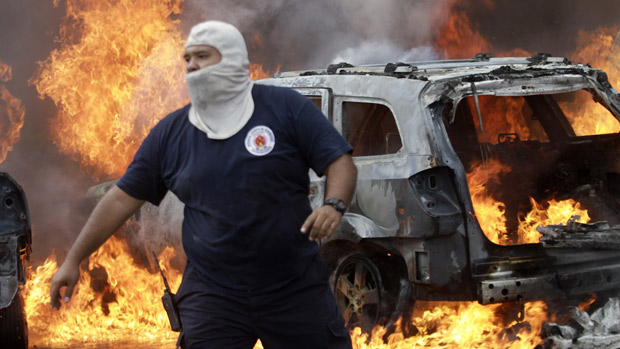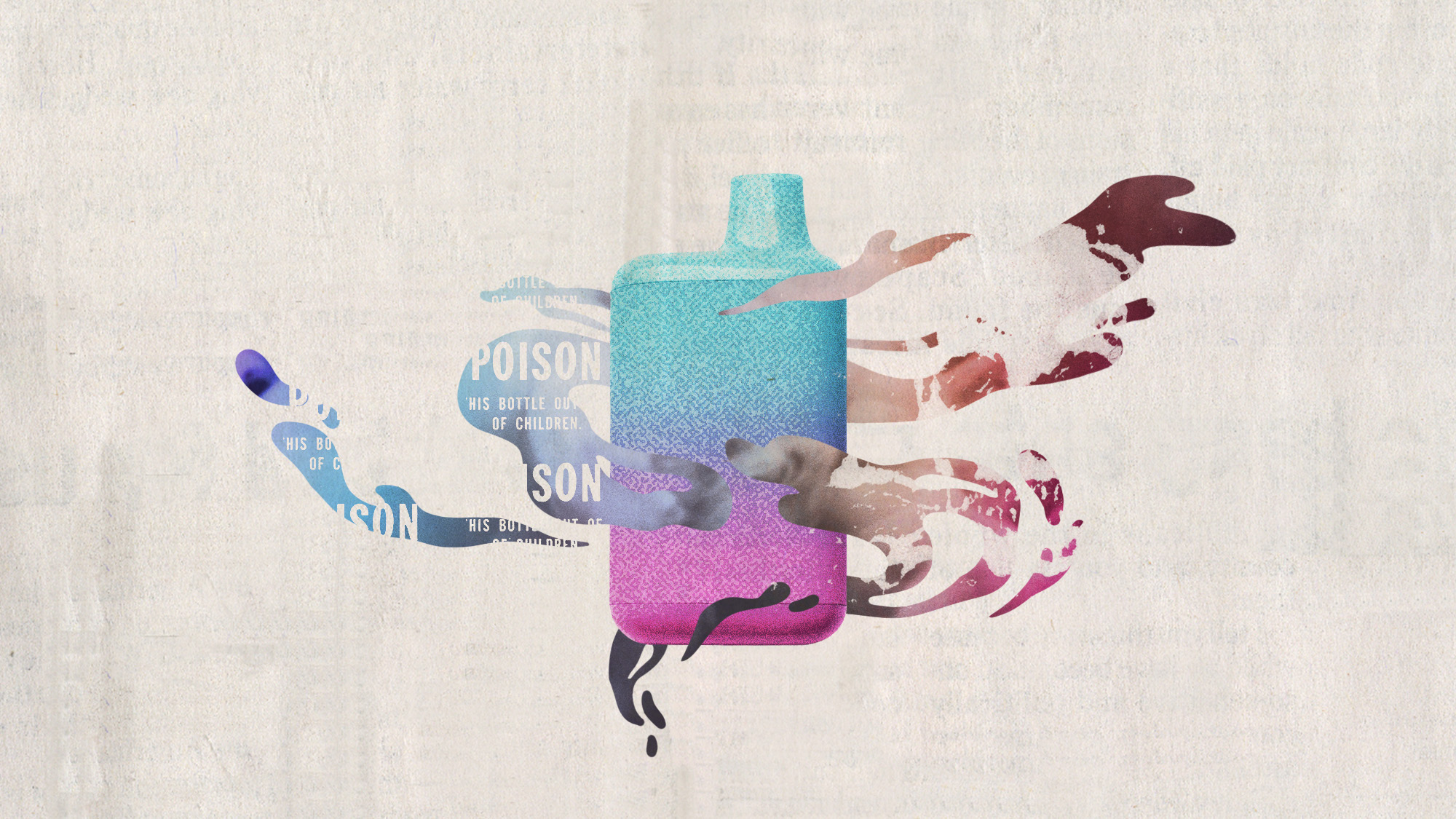Mexico crisis: protests over missing students continue
Anger over government links with drug gangs and mass disappearances could threaten the presidency

A free daily email with the biggest news stories of the day – and the best features from TheWeek.com
You are now subscribed
Your newsletter sign-up was successful
Demonstrators have set fire to the state assembly building in the south-western Mexican state of Guerrero, as nationwide protests against the government's alleged involvement with criminal gangs continue.
Over 1,000 masked protesters, including teachers and students, stormed the state capital Chilpancingo, throwing rocks and petrol bombs at police. According to officials, three police officers and two journalists were injured.
This was the latest in what have been some of the largest protests in Mexico's history, with demonstrators calling for the resignation of the country's president Enrique Pena Nieto.
The Week
Escape your echo chamber. Get the facts behind the news, plus analysis from multiple perspectives.

Sign up for The Week's Free Newsletters
From our morning news briefing to a weekly Good News Newsletter, get the best of The Week delivered directly to your inbox.
From our morning news briefing to a weekly Good News Newsletter, get the best of The Week delivered directly to your inbox.
What caused the protests?They were triggered by the disappearance of 43 students who went missing in September on their way to a protest in the town of Iguala. They were last seen being bundled into police cars.
Local police officers confessed to capturing the students and handing them over to the prominent drug gang Guerreros, the BBC reports. The mayor of Iguala, Jose Luis Abarca has been arrested on suspicion of ordering the police to round up the students and the city's police chief is still on the run.
It is still not clear why the students were targeted, but many suggest it could have been because of their left wing political beliefs or they refused to make extortion payments to the gangs.
Mexican journalist Sergio Gonzalez Rodriguez says these gangs form "a network of enormous scope that reach up to the highest public office in Mexico". The protests are a clear sign that Mexicans have had enough of this collusion.
A free daily email with the biggest news stories of the day – and the best features from TheWeek.com
While searching for the bodies of the students, several mass grave sites were found. Tests have yet to confirm if any of the bodies are those of the students.
What will happen next?The case has highlighted the issue of mass disappearances in the country. Human rights organisations estimate that since 2006, as many as 200,000 people have disappeared, according to Al Jazeera.
"Mexico is a land of narco graves, filled with the murdered young and poor, because hardly anybody in a position of authority, including the president, considers it in his or her interest to try to put a stop to it," writes Francisco Goldman for the New Yorker.
Protests against this are likely to continue, with many predicting that they may result in a mass movement that could reach Mexico City. With elections due to be held in June next year, this means that "there is opportunity for change in Mexico, both through civil disobedience and through the ballot box", says Goldman.
Mexico: mass graves found in search for student protesters
10 October
More mass graves have been discovered near the southern Mexican town where 43 students went missing last month after clashes with police.
A huge operation is underway to find the students who disappeared during a demonstration in Iguala, which lies in Guerrero state. They were last seen being bundled into police cars, according to the BBC.
Last week, 28 burnt bodies were discovered in six shallow graves, but they have yet to be identified and forensic tests are expected to take weeks.
The federal attorney general says the most recently discovered graves also contain burnt bodies and are in the same area as the first set of graves.
The investigation has led to the arrest of 34 people, most of them local police. Authorities are also searching for the town mayor who, along with his wife and head of security, went on leave after the clashes.
Various theories are circulating about the reason for the students' disappearance. Some have suggested they fell foul of local drug gang Guerreros Unidos by declining to pay extortion money.
However, political theories are popular too. The students attended a local teacher training college with a history of left-wing activism and some say they were targeted for that reason.
It is believed the authorities were worried the students may disrupt a speech the mayor's wife was giving to local dignitaries on the day of the incident.
The episode has caused shock throughout Mexico. Thousands marched in cities across the country yesterday, reports the BBC. President Enrique Pena Nieto is trying to deflect criticism of government inaction in finding the students.
-
 The mystery of flight MH370
The mystery of flight MH370The Explainer In 2014, the passenger plane vanished without trace. Twelve years on, a new operation is under way to find the wreckage of the doomed airliner
-
 5 royally funny cartoons about the former prince Andrew’s arrest
5 royally funny cartoons about the former prince Andrew’s arrestCartoons Artists take on falling from grace, kingly manners, and more
-
 The identical twins derailing a French murder trial
The identical twins derailing a French murder trialUnder The Radar Police are unable to tell which suspect’s DNA is on the weapon
-
 Epstein files topple law CEO, roil UK government
Epstein files topple law CEO, roil UK governmentSpeed Read Peter Mandelson, Britain’s former ambassador to the US, is caught up in the scandal
-
 Mexico’s vape ban has led to a cartel-controlled black market
Mexico’s vape ban has led to a cartel-controlled black marketUnder the Radar Cartels have expanded their power over the sale of illicit tobacco
-
 Iran and US prepare to meet after skirmishes
Iran and US prepare to meet after skirmishesSpeed Read The incident comes amid heightened tensions in the Middle East
-
 Israel retrieves final hostage’s body from Gaza
Israel retrieves final hostage’s body from GazaSpeed Read The 24-year-old police officer was killed during the initial Hamas attack
-
 China’s Xi targets top general in growing purge
China’s Xi targets top general in growing purgeSpeed Read Zhang Youxia is being investigated over ‘grave violations’ of the law
-
 Panama and Canada are negotiating over a crucial copper mine
Panama and Canada are negotiating over a crucial copper mineIn the Spotlight Panama is set to make a final decision on the mine this summer
-
 Why Greenland’s natural resources are nearly impossible to mine
Why Greenland’s natural resources are nearly impossible to mineThe Explainer The country’s natural landscape makes the task extremely difficult
-
 Iran cuts internet as protests escalate
Iran cuts internet as protests escalateSpeed Reada Government buildings across the country have been set on fire